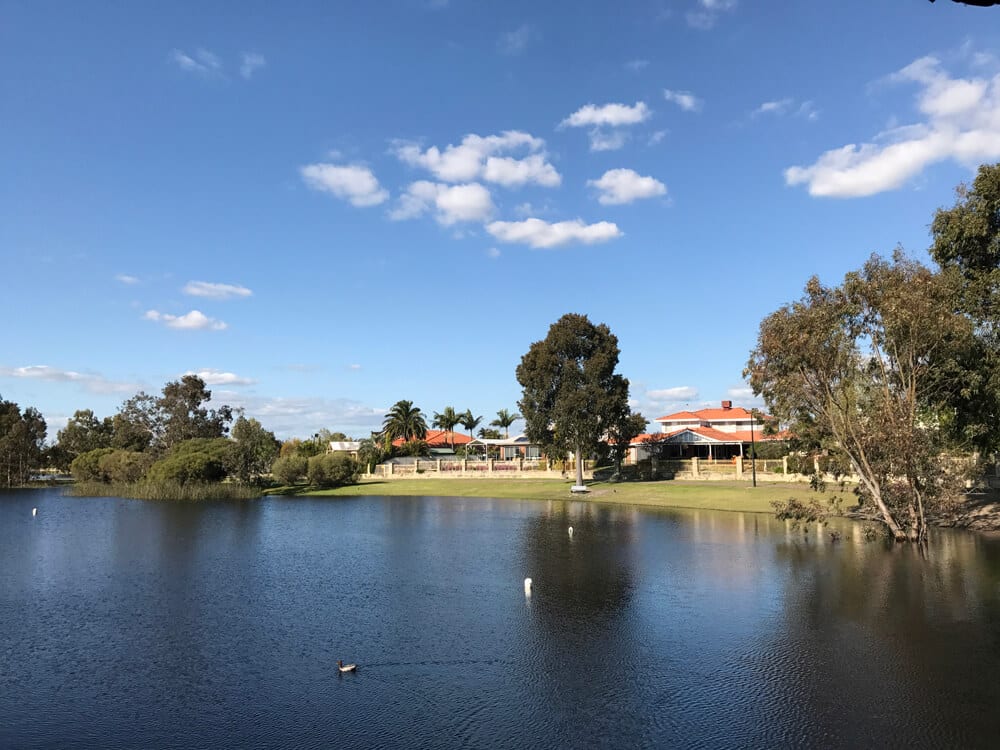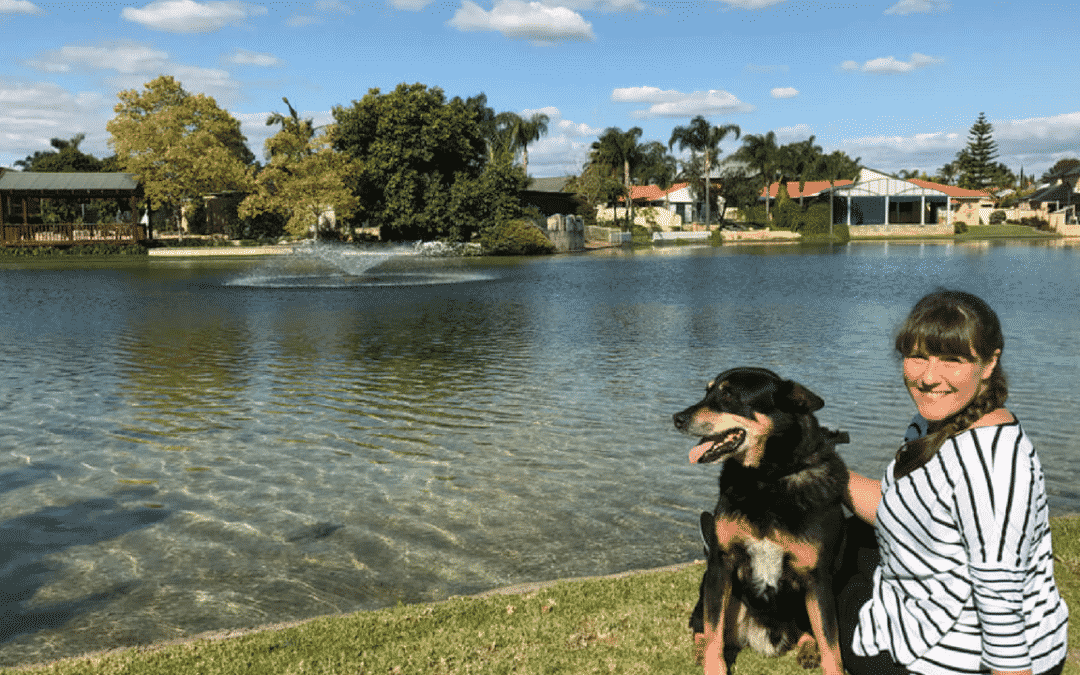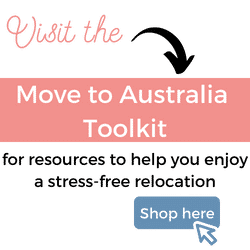Steps to Buying a House in Australia is a sponsored post by Mortgages, Money and Me.
This week’s blog post is a guest post from Roni Gors of Mortgages, Money and Me in Perth, Western Australia. I remember how daunting it was to buy our first home in Brisbane – Roni has written a really useful guide to tell you everything you need to know about buying a home Down Under. If you’re interested in buying a property in Australia, Roni also has a Facebook group called Buying a Property in Australia – Perth that is well worth a look. It gives you direct access to Roni to ask your home-buying questions.
Buying your first Aussie home
By Roni Gors

When you are looking to purchase a property in Australia each State is governed by different laws that have an effect on Government costs, First Home Owner Grants and contract law (such as whether a cooling off period is applicable).
That said, your basic process to buy a house should be similar regardless of where you choose to purchase.
- Check your finances
- Will you need FIRB (Foreign Investment Review Board) approval?
- Find your house
- Make an offer to purchase
- Confirm your finance
- Appoint a solicitor or conveyancer to assist with the home transfer
Step 1 – Check your finances
Mortgages and Home Loans in Australia
The amount you can borrow will depend not only on your income, and your existing expenses, but also the amount of deposit that you have available, and your type of migration Visa.
Banks vs Brokers
Everybody’s situation is different, and so this is where consultation with a finance broker rather than a single bank can really help. Be aware that a bank can only advise based on their own products and policies, where a broker can advise based on the range of lenders on their panel. A broker will know that one lender may only lend to 70% of property value for someone on a 457 Visa (for example), a different lender could go to 90%. In most cases, a broker does not charge you a fee for their services as they are paid commission by the bank for introducing business. This normally does not increase the cost of the loan and, in many cases, a broker can get a better deal than approaching the bank directly.
Your broker can help calculate the costs of buying a house and the amount of finance you will require, and how much the repayments will be. It may be appropriate to apply for pre-approval for finance at this stage, or your broker may encourage you to wait until you have an offer to purchase a property. Your broker will also explain the loan products that are available, and help you structure your loan in the most cost-effective way possible.
Here are some costs that should be taken into consideration:
- Purchase price
- Pest and building inspections
- Land transfer stamp duty and other Government fees
- Lenders Mortgage Insurance (applicable if you borrow more than 80% of property value. Significant cost, can be thousands)
- Bank application fees
- Solicitor/Conveyancer/Settlement agent
- Moving costs
You should also consider the ongoing costs of owning a house:
– Council and Water rates
– Strata and Body Corporate fees (if applicable)
– Repairs and Maintenance
– Home Insurance
Please feel free to contact me if you need help calculating any of these.
First Home Owner Grant (also known as First Home Buyers Grant)
You may be eligible for the First Home Owners Grant if this is your first home in Australia… even if you have owned property overseas!
The Grant is a benefit that can save many thousands of dollars, and ranges from stamp duty waiver through to cash in hand.
Each State has different amounts of the Grant available for different purchase thresholds, so contact your broker to find out what grants you may be eligible for.
Step 2 – Will you need FIRB (Foreign Investment Review Board) approval?
Unless you are an Australian citizen or Permanent Resident, you may need permission from the Foreign Investment Review Board (FIRB) before you can purchase a property. In most cases, foreign non-residents are not permitted to buy established dwellings, and contract law means some people may not be able to buy at auction. Do your research and be prepared to make an application to the FIRB before you start your property search.
Step 3 – Find your house

Houses for sale in Australia
Most people start looking for property for sale in Australia via online sales listings or direct enquiry through a local real estate agent. You may also wish to consider a Buyers Agent, or directly approaching a potential seller (providing they have not already signed up with an agent).
Real Estate Agents vs Buyers Agents
In most cases property in Australia is sold through a real estate agent. The seller of the property pays the real estate agent a commission, and in most cases this is a percentage of the sale price. This means that the real estate agent has a vested interest in selling the property for the highest amount possible, and is working for the seller not the buyer (you!).
You can make yourself known to real estate agents when you are looking for a property, but if you truly want an agent to negotiate and have your best interests at heart you should consider a Buyers Agent. If you do, the Buyers Agent will charge you a fee, and this can range from a percentage of the purchase price to a flat amount. Most people choose to save their money and do their own research and negotiation, but it is certainly an option if you are not familiar with a market and want someone to act on your behalf. A Buyers Agent should be able to save the amount of their fee through negotiation on your behalf and finding well priced properties in good locations.
Direct purchase
While rare, it is also possible to directly approach potential sellers (providing they have not already contracted to an agent) and ask them if they want to sell their property. This does not happen often as most people prefer the ‘arms length’ nature of using an intermediary and the confidence that the purchase contracts will be correctly prepared.
Potentially you could find a private sale via a newspaper listing or private sign on the property, or if there is a particular house or street you like you could simply knock on the door or drop a note in the letterbox to ask.
Auction vs Private treaty
Be aware that if you purchase a property at auction in any State of Australia it is considered a cash sale, and there is no cooling off period. You will need to be confident that your finance is in place and that you will be able to complete the purchase.
If you purchase via private sale or treaty you can make your offer subject to finance and pest/building inspections. Some States allow a cooling off period, and some don’t so its best to know your rights by talking to your settlement agent or conveyancer first.
Step 4 – Make an offer to purchase

You have found the property you want in the location you love… now what? You need to put your offer to purchase the house in writing, and this is done via a standard contract form that is normally prepared by the real estate agent.
These are some clauses that you may wish to include in your offer:
A. Subject to finance. Ideally, you will know the lender you are likely to go with as a result of your discussions with your broker or bank. Make sure this clause actually does specify a lender, or technically the sellers or agent could force you to go with a lender not of your choice. The real estate agent may try to push you to have finance approved in 7 days. This is a very tight timeframe, and while not impossible is not recommended. 14 days as a minimum is better, and 21 days better still. You will then have a further timeframe to settlement (where the property ownership changes to you). Again, 14 days at a minimum, 21 days is better. If it suits you to have a longer timeframe, by all means ask for it.
B. Subject to pest/termite inspection. Some States are more prone to pest infestation than others, and you really don’t want to be buying a house that has been structurally compromised though something like termite damage! That said many properties do have prior damage, but providing the infestation has been treated and the damage is non-structural it is normal to proceed with the purchase.
C. Subject to building inspection. This is an optional clause, but makes good sense. Make sure that your clause has an exit strategy if you find your building inspection uncovers significant structural damage that you are not prepared to accept. ‘Subject to building inspection’ it itself does not protect you!
D. Nominate a solicitor/conveyancer/settlement agent. Strictly speaking, this does not have to be done exactly at this point, but it is good to have your representative nominated as soon as you can to avoid future delays. (A settlement agent is often suggested by the real estate agent, but you can use anyone of your choice).
There may also be other clauses that your real estate agent will suggest. Make sure that you fully understand what they are, and if you are at all uncertain refer the contract to your solicitor or conveyancer prior to signing the contract.
There may be a period of negotiation where the seller rejects your initial offer and counter offers until you both agree on a price.
Check also at this point to see who is responsible for insuring the house prior to settlement. In most cases it is the person selling the house, but legislation does differ from state to state. Many insurers will provide complimentary insurance for this transition period, so it is well worth checking.
Step 5 – Confirm your finance
Once your offer has been formally accepted it is time to make sure your finance is in order.
Get back in touch with your finance broker or lender and let them know your offer has been accepted and that you need to complete your application for finance. Your broker will assist with your application and guide you with regards loan structure and product types. Your broker will communicate with you, your real estate agent and your solicitor to ensure that the process runs smoothly right through to settlement. (Settlement is the legal change of ownership to your name.)
Once your loan is approved your bank will send you the loan offer documents. These will need to be checked for errors and correctly signed and returned to the bank. Your broker can assist with this process, or you can handle independently if you prefer.
You will also need to organise insurance for your new house noting your lender as the interested party. This is a bank requirement for all loans unless they are covered by separate insurance such as that for Strata Titled properties (typically units and apartments).
Step 6 – Appoint your solicitor or conveyancer
Your broker normally advises your real estate agent and solicitor/conveyancer once your finance is approved. This sets the wheels in motion for the legal ownership transfer process to start. Your solicitor will liaise with yourself, the seller and your bank to facilitate the release of funds from the loan, and the transfer of the property to your name.
It’s time to move in!
Want to learn more about buying a house in Australia? Roni has a free guide called Buying a house in Australia – that you can subscribe to here that walks you through the whole process.
About the Author Roni Gors:
Hi, my name is Roni and I am the Owner of Mortgages, Money and Me, a Finance Brokerage based in Perth, Western Australia. I know first hand what it is like to move away from family and friends as I have relocated not once, but twice.. the second time with two young children! I love this business as it allows me to help people with their own goals, while balancing my own life as a parent and self-educator. Please get in touch if you need any help buying your home in Australia.
The Legal Bits
Apple Road Pty Ltd (ACN 123 503 293) trades as Mortgages, Money and Me under Australian Credit Licence 384721. This advice is of a general nature only and does not take into consideration your individual needs and circumstances. While every effort has been made to ensure this information is correct we will not accept responsibility for any omissions or errors. Please do not act on this advice without consultation with the relevant professionals!
If you enjoyed this post you may also like to read this post about what is involved in buying a house as an expat, and this post about the costs involved in buying a house. If you still need to move your money over, this post about transferring money abroad might also help you out too!
















